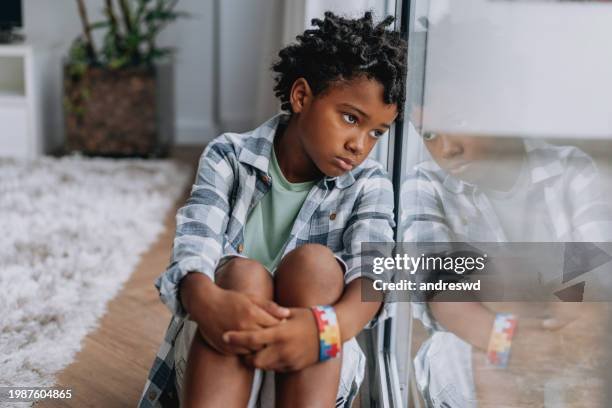Why Gen Alpha Kids Are Struggling to Make Friends: A Deep Dive into the Loneliness Epidemic

Source
Introduction
Friendships are an essential part of childhood, shaping emotional well-being, self-esteem, and social skills. However, recent research indicates that many Generation Alpha children (born from 2010 onward) are facing significant challenges in forming friendships. The C.S. Mott Children’s Hospital National Poll on Children’s Health surveyed over 1,000 parents of children aged 6 to 12 and found that one in five parents reported their child had no friends or not enough friends. This concerning trend is part of a broader loneliness epidemic affecting children today, exacerbated by social changes, digital distractions, and psychological factors.
Understanding the Friendship Crisis
The modern social landscape for children is vastly different from previous generations. Gone are the days when friendships were built effortlessly on playgrounds and in neighborhoods. Several key factors contribute to the difficulty Gen Alpha kids face in making friends:
1. Social Anxiety and Personality Differences
According to the poll, 21% of parents identified their child’s shyness or social awkwardness as a major barrier to making friends. Children with introverted personalities or those struggling with confidence often find it difficult to initiate or maintain friendships, leading to isolation.
2. Bullying and Social Exclusion
Bullying remains a significant issue, both in-person and online. The poll found that 15% of parents cited other children being mean as a reason their child struggles socially. Peer exclusion and social hierarchies can create an environment where some children feel left out, making it harder for them to find a sense of belonging.
3. The Impact of Technology
While technology offers incredible learning opportunities, excessive screen time has diminished face-to-face interactions. Many children today are more comfortable communicating through screens than engaging in real-life social situations. Social media, online gaming, and digital entertainment have shifted the way friendships form, often replacing traditional playdates and in-person gatherings.
4. Busy Schedules and Overstructured Lives
Surprisingly, 18% of parents in the survey reported that their children have “no time” to make friends. Many kids are overwhelmed with academic pressures, extracurricular activities, and structured routines, leaving little room for free play and organic social bonding. Unlike previous generations who spent afternoons playing outside, today’s children often have their days scheduled down to the minute.
5. Lack of Social Spaces
Around 16% of parents stated that their children lacked a place to hang out with friends. With the decline of neighborhood play, fewer community spaces, and increasing safety concerns, children have fewer opportunities to interact casually and build friendships.
6. Medical and Developmental Challenges
While less than 10% of parents cited medical conditions or disabilities as a major barrier, children with special needs often face additional hurdles in forming friendships. Conditions such as autism spectrum disorder (ASD), ADHD, and social anxiety disorders can impact social skills, making it more difficult for children to connect with peers.
The Emotional Toll of Loneliness
The inability to make friends can have significant emotional and psychological effects on children.
- Lower Self-Esteem: Children who struggle socially may internalize feelings of rejection, leading to diminished confidence and self-worth.
- Increased Anxiety and Depression: Research has shown a strong link between loneliness and mental health challenges in children. Feelings of isolation can contribute to anxiety, sadness, and even depression.
- Weakened Social Skills: Social interaction is a learned skill. Without regular practice, children may have difficulty navigating relationships in adolescence and adulthood.
- Higher Risk of Academic Struggles: A lack of social support can also affect classroom performance, as friendships often provide encouragement, motivation, and emotional stability.
Solutions: Helping Gen Alpha Build Friendships
While the challenges are real, there are several ways parents, educators, and communities can help children overcome social barriers and foster friendships.
1. Encouraging Socialization Through Activities
Parents can enroll children in group activities such as sports teams, music classes, art clubs, or scouting programs. These settings provide structured but informal opportunities to interact with peers who share similar interests.
2. Teaching Social Skills at Home
Parents can play a proactive role by teaching kids essential social skills such as introducing themselves, making eye contact, and taking turns in conversations. Role-playing different social scenarios can help children feel more comfortable interacting with others.
3. Limiting Screen Time and Encouraging Face-to-Face Interactions
Setting boundaries on digital device usage and encouraging outdoor play, board games, and family activities can help children develop stronger in-person communication skills.
4. Creating More Opportunities for Unstructured Play
Unstructured play is crucial for social development. Whether it’s a simple neighborhood gathering, a playdate, or free recess time at school, allowing children to engage in play without strict rules fosters natural friendships.
5. Addressing Bullying and Promoting Inclusivity
Schools and communities must take proactive measures to combat bullying and create inclusive environments where all children feel safe and valued. Encouraging kindness, empathy, and conflict resolution skills can make a significant difference.
6. Providing Emotional Support
If a child struggles to make friends, validating their feelings and reassuring them that they are not alone can be immensely helpful. Seeking support from school counselors or therapists may also benefit children experiencing severe social anxiety.
Conclusion
The loneliness epidemic among Gen Alpha children is a pressing issue that requires attention from parents, educators, and society as a whole. While the challenges are multifaceted, fostering social connections through structured activities, reducing digital distractions, and promoting emotional well-being can help children build meaningful friendships. By taking proactive steps, we can ensure that this generation grows up with the essential social skills needed to thrive in an increasingly interconnected world.
Source of image: Getty Images





